In the period from 1941 to 1991, Estonia was occupied briefly by Nazi Germany and then for four and a half decades by the USSR. The history of this difficult period comes to life in this modern museum on the edge of the Old Town. Museum's permanent exhibition ‘Freedom Without Borders’, which looks at occupations, resistance, restoration, and freedom from five different perspectives: crimes against humanity, Estonians in the free world, life in Soviet Estonia, the restoration of independence, and finally – freedom.
The exhibition can be self-explored or guided by an entertaining, e-tour guide, available in nine languages (Estonian, Russian, English, Finnish, German, French, Spanish, Latvian, Lithuanian). The fascinating exhibits are punctuated by personal possessions from those that escaped, lived through or were exiled to Siberia during the occupation – bringing a very human element to the situations they faced and how they coped with them. Their stories are also told here, often in their own words, which truly bring their experiences to life. Vabamu also has a special exhibition tailored for children, where different stories are told for different age groups.
Vabamu Museum of Occupations and Freedom
Website
www.vabamu.ee/enAmenities
City card
Open
From October through April open Wed – Sun 11:00 – 18:00, closed Mon, Tue. From May through September open daily 10:00 – 18:00.


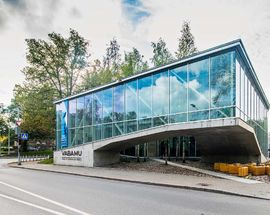
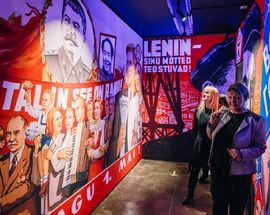
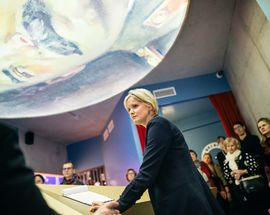

_m.jpg)
_m.jpg)
_m.jpg)
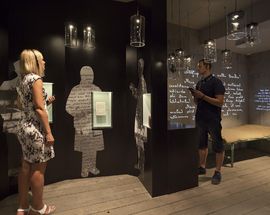
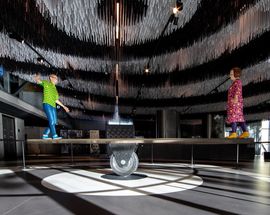
_m.jpg)


Comments
The Museum of Occupations
Hello Naphtali, We recommend to ask about these lists from Estonian Institute of Historical Memory http://mnemosyne.ee/en/.
Naphtali
Bar Ilan
Hello, Is there an archive in Estonia with the names of all the prisoners who were in labour or concentration camps during the second world war? Thank you.
Lance Grundy
This museum about the so-called Three Occupations of Estonia Soviet-Nazi-Soviet should definitely be on your itinerary of things to see while you are in Tallinn. In my opinion it’s not nearly as good as the far more comprehensive Occupation Museum in Riga but is definitely worth half an hour or so of anyone's time. Wholeheartedly agree with the reviewer below that the on-line documentaries available via the museum's website are well worth a look. The museum shop also stocks a decent range of books and DVDs covering the period including an excellent book about life in Estonia under the Soviet occupation called "Memories Denied" by the Estonian author and director Imbi Paju.
Bruce Patterson
The English website offers a full view of the inventory as well as online access to the excellent documentaries that say it all.The entrance fee is €4 not 2 as stated here; I would highly recommend watching the documentaries online!